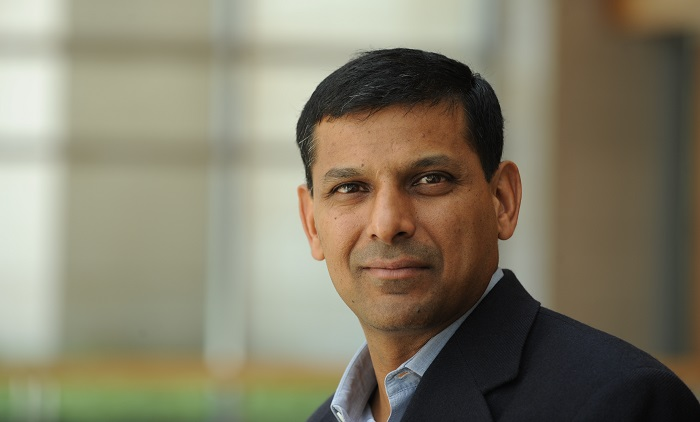It is when the behemoth of monopoly enterprise consorts with the leviathan of the authoritarian state that both are likely to achieve permanence, writes Raghuram Rajan.

Power prefers permanence. Unregulated markets tend toward concentration as the successful try and entrench themselves by pulling up behind them the ladder of competition that they themselves climbed. Equally, the politically powerful are tempted to suppress any competitive threat to their future posed by democracy. James Madison was persuaded that democracy would work in the United States because in a large country with many different competing political interests, it would be hard for any specific interest to dominate. Yet interests can coalesce.
It is when the behemoth of monopoly enterprise consorts with the leviathan of the authoritarian state that both are likely to achieve permanence. History is strewn with examples of these collusive arrangements, some of which we have already encountered. Communism brought all business enterprise under government planning and control, with the state dominated by the Communist Party, the self-appointed representatives of the proletariat. Business and the state were united under the proletarians. Fascism was different only in the language of the dominant group and its stated aims, which was national supremacy instead of the communist paradise of the universal brotherhood of workers. In practice, fascism too involved permanent party dominance of the state, and state control of industry. Today, we have milder versions of these totalitarian regimes, with state-controlled capitalism in countries like China and Russia, and authoritarian capitalism in Turkey.
While the nomenclatures vary, at the heart of such regimes is a pact between the cartelized market and the state, leaving little room for economic or political competition, or the community. Such arrangements are examples of what political economists Douglass North, John Wallis, and Barry Weingast call limited-access societies.
 In contrast, the liberal market democracies in developed countries are what they call open-access societies, combining free and open markets with vibrant democratic control over the government. Implicit in the work of a number of political scientists is the belief that open-access societies are the desirable pinnacle of social development, and they will not regress back to limited- access societies because of the strong institutions that protect them. They are probably right in believing that open- access societies are the best we can do for now, but they are mistaken in thinking that open-access societies cannot regress.
In contrast, the liberal market democracies in developed countries are what they call open-access societies, combining free and open markets with vibrant democratic control over the government. Implicit in the work of a number of political scientists is the belief that open-access societies are the desirable pinnacle of social development, and they will not regress back to limited- access societies because of the strong institutions that protect them. They are probably right in believing that open- access societies are the best we can do for now, but they are mistaken in thinking that open-access societies cannot regress.
To prevent regression, it is critical that the balance be maintained. As we will see now, communities of citizens, expressing their interests through democracy, played an important role in the United States in preventing a corrupt compact between the state and the markets.
How the United States Preserved a Competitive Market
In a recent study, Harvard economists Edward Glaeser and Claudia Goldin graphed the relative frequency of the appearance of the words “fraud” and “corruption” in the New York Times relative to the word “political” over time. They find a steady decline from the time of the notoriously corrupt Ulysses Grant presidency in the 1870s (not coincidentally, about the time of Rockefeller’s Cleveland Massacre) till about the time of the Nixon presidency in the early 1970s. They conclude that political corruption declined steadily in the United States, especially between the late 1870s and 1920s.
Two great democratic reform movements date from around this time, first the Populists from the 1870s till the mid-1890s, then the Progressives from the mid- 1890s till the end of World War I. The first movement was born out of adversity and anger, and the second was a middle- class movement, which flourished largely in a time of prosperity. As they fought against the privileged, and for the ordinary unconnected individual, these movements introduced a measure of restraint on political corruption and the associated creeping monopolization of American business. Both movements sought to constrain the unfettered market in order to make it work for the forgotten common man. While neither was entirely successful in its aims, together they provided a needed course correction for the United States.
Raghuram Rajan is the Katherine Dusak Miller Distinguished Service Professor of Finance at Chicago Booth. Excerpted from The Third Pillar by Raghuram Rajan. Reprinted by arrangement with Penguin Press, a member of Penguin Group (USA) LLC, A Penguin Random House Company. Copyright © Raghuram Rajan, 2019. Rajan will discuss his book with Luigi Zingales on March 5—details here.
Disclaimer: The ProMarket blog is dedicated to discussing how competition tends to be subverted by special interests. The posts represent the opinions of their writers, not necessarily those of the University of Chicago, the Booth School of Business, or its faculty. For more information, please visit ProMarket Blog Policy.






